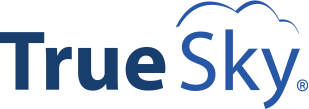The ROI of Investing in a Corporate Budgeting Tool
In today’s competitive business environment, managing finances efficiently is crucial for any organization. One way to achieve this is by investing in a corporate budgeting tool. While the initial investment might seem significant, the return on investment (ROI) can be substantial. Here’s a detailed look at how a budgeting tool can enhance your business operations and deliver a strong ROI.
Improved Accuracy and Reduced Errors
Benefit: One of the primary advantages of using a corporate budgeting tool is the significant reduction in human errors. Manual budgeting processes are prone to mistakes, which can lead to inaccurate financial planning and reporting.
ROI Impact:
- Cost Savings: By automating data entry and calculations, budgeting tools minimize errors. This reduction in errors can save a company substantial amounts of money that would otherwise be spent correcting mistakes.
- Example: If your company typically incurs $50,000 annually due to budgeting errors, a tool that reduces these errors by 80% would save $40,000 annually.
Enhanced Efficiency
Benefit: Budgeting tools streamline financial processes, automating repetitive tasks and improving workflow efficiency.
ROI Impact:
- Time Savings: Employees spend less time on manual data entry and reconciliation.
- Labor Cost Reduction: The reduced need for overtime or additional staffing to handle peak budgeting periods translates to significant cost savings.
- Example: If a company can save 1,000 hours of labor annually, and the average hourly wage is $30, this results in $30,000 in labor cost savings each year.
Better Financial Planning and Forecasting
Benefit: Advanced budgeting tools offer sophisticated analytics and forecasting capabilities, enabling better financial planning and decision-making.
ROI Impact:
- Informed Decisions: Enhanced forecasting accuracy leads to better resource allocation and strategic planning.
- Revenue Growth: By making more informed decisions, companies can identify new opportunities for growth and avoid potential financial pitfalls.
- Example: Improved financial planning might contribute to a 5% increase in annual revenue. For a company with $10 million in revenue, this equates to an additional $500,000.
Increased Collaboration and Transparency
Benefit: Budgeting tools often come with features that promote collaboration across departments, improving communication and transparency.
ROI Impact:
- Unified Financial Goals: Enhanced collaboration ensures all departments are aligned with the company’s financial goals, leading to more cohesive and effective budgeting.
- Operational Efficiency: Transparency reduces duplication of efforts and ensures resources are used more efficiently.
- Example: Improved collaboration can result in a 10% increase in project efficiency, potentially saving $100,000 annually on a $1 million project budget.
Compliance and Reporting
Benefit: Budgeting tools help ensure compliance with financial regulations by maintaining accurate and up-to-date records.
ROI Impact:
- Avoidance of Penalties: Accurate and timely reporting helps avoid costly fines and penalties associated with non-compliance.
- Audit Readiness: Simplified audit processes save time and resources during financial audits.
- Example: Avoiding a single non-compliance penalty of $20,000 annually already demonstrates significant ROI.
Investing in a corporate budgeting tool offers numerous benefits that contribute to a strong ROI. Improved accuracy, enhanced efficiency, better financial planning, increased collaboration, and ensured compliance are just a few of the advantages that can translate into substantial cost savings and revenue growth. By adopting a robust budgeting tool, companies can streamline their financial operations, make informed decisions, and ultimately achieve their financial goals more effectively.
Implementing a corporate budgeting tool is not just an investment in technology, but an investment in the future success and sustainability of your business.



